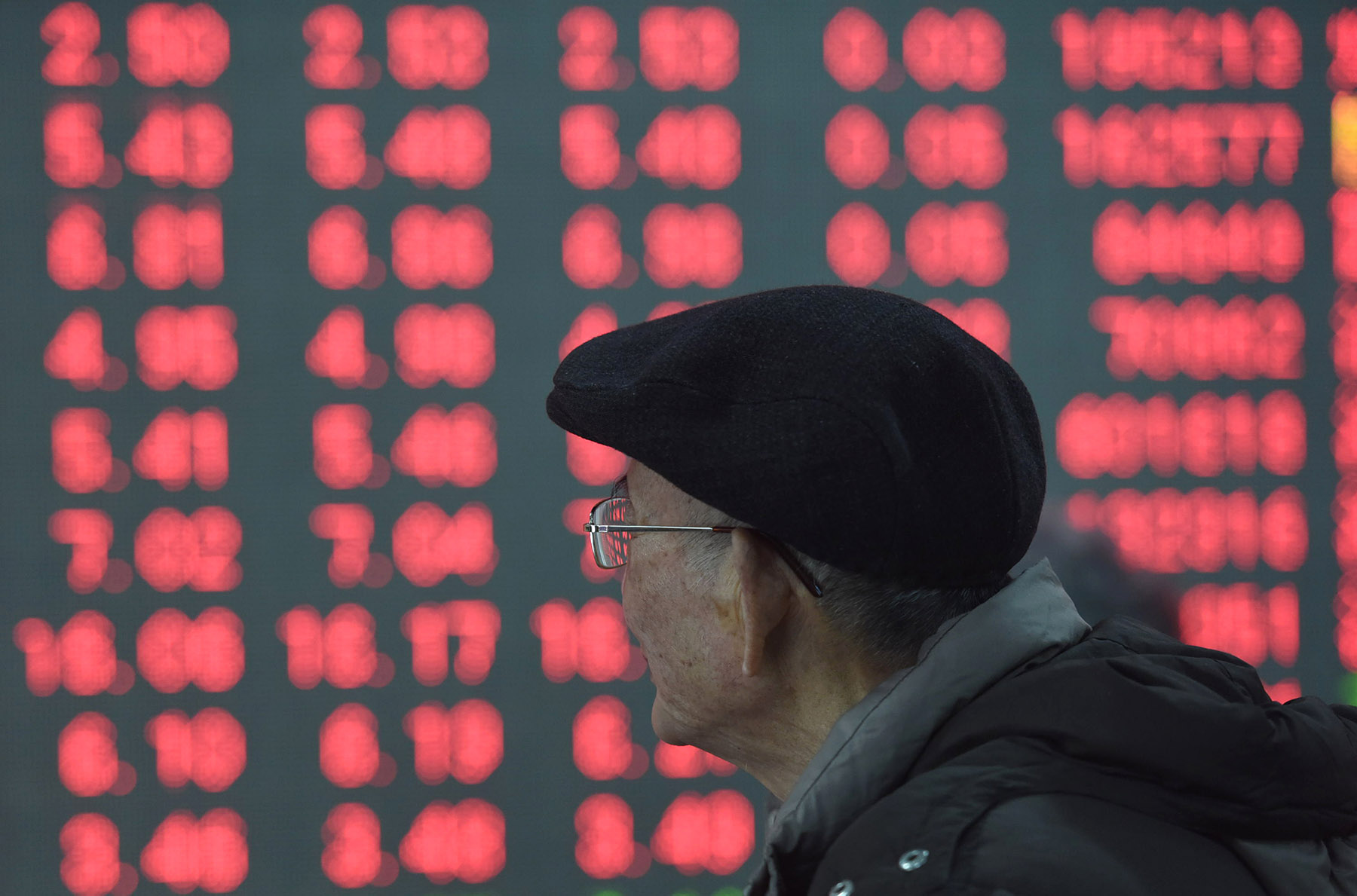Expert: 'Mismatch' exists to some extent between funding tools and innovation sector

China is expected to improve the design and implementation of policy measures to boost financing of innovation-oriented science and technology enterprises, particularly by utilizing non-loan financing and patient capital, in order to accelerate the development of new quality productive forces, experts said.
That is crucial for the country to strengthen its position in global industrial, supply and value chains, as it faces containment from some countries in high-tech areas, they said.
READ MORE: 'Patient capital' seen as key to sci-tech self-reliance
Zhang Xiaohui, vice-president of the China Society for Finance and Banking, said sci-tech innovation could significantly enhance the overall strength of an economy. It determines whether the country can avoid the so-called middle-income trap and play a leading role in the development of international standards.
Sci-tech innovation is an activity with a long life cycle, high uncertainty and high failure rate ... The sector needs more ‘patient capital’ and investors should be more failure-tolerant.
Tian Xuan, associate dean of Tsinghua University’s PBC School of Finance
"Finance could empower sci-tech innovation and the development of new quality productive forces by optimizing resource allocation, as well as increasing its efficiency," Zhang said.
"Currently, there exists to some extent a mismatch between financial services and the financing needs of China's sci-tech innovation sector. A large sum of money has been invested, but the financing channels are still limited, most of which are indirect channels such as loans."
In addition, the country's capital market needs improvements to support a large number of qualified sci-tech innovation-based enterprises to get listed, she said.
Against such a backdrop, Zhang said China should continue to optimize its financial system for sci-tech innovation. The country should enhance the financial ecosystem and develop customized financial services based on different stages of sci-tech innovation's life cycle, she said.
Chinese leadership has stressed the importance of fostering new quality productive forces and increasing sci-tech self-reliance on many occasions.
The China Securities Regulatory Commission, the country's top securities regulator, announced on June 19 eight new measures to further reform the Nasdaq-style Science and Technology Innovation Board (STAR) market of the Shanghai Stock Exchange, which include giving priority to the listing of enterprises with breakthroughs in new industries, new business patterns and new technologies.
The CSRC also pledged to improve institutional inclusiveness and encourage high-quality tech firms that have yet to make profits to list on the STAR market, as enterprises with new quality productive forces often need large and sustained investments while facing uncertainties in research and development as well as commercial applications.
At the beginning of the year, the National Financial Regulatory Administration also issued a circular, urging greater efforts by banking and insurance institutions to improve financial services for sci-tech firms.
The circular encouraged banking and insurance institutions to increase credit issuance for sci-tech startups on the prerequisite that risk is well under control, and they should scale up support in intellectual property pledge financing while setting up branches in places where science and technology resources are concentrated.
In addition, tolerance of nonperforming loans among small and micro tech enterprises can also be relaxed by no more than 3 percentage points compared with other loans, the circular said.

Zhang said direct financing channels could best meet the needs of sci-tech innovation-based enterprises and projects, and equity investment funds should be a major source of funding for them.
"To promote direct financing, the country must strive to construct a multilayered capital market and improve the operating mechanisms of both the Growth Enterprise Market and the STAR Market," she said.
When it comes to indirect financing, Zhang said lenders should further strengthen support for sci-tech innovation by improving their mechanism design, support system and risk compensation.
The banks should develop institutional mechanisms in line with the financing needs of the sci-tech innovation sector. Efforts should also be intensified to construct more financial intermediaries, which can help banks better collect information about sci-tech innovation-based enterprises, Zhang said.
In addition, most sci-tech innovation-based enterprises tend to be asset-light and high-risk. Banks bear more risks in granting loans to such enterprises than doing so to big, established clients and individuals. Therefore, a more complete risk compensation mechanism is urgently needed to enhance banks' enthusiasm for supporting sci-tech innovation, she added.
Zhang made the remarks at the 2024 Tsinghua PBCSF Global Finance Forum recently held in Hangzhou, Zhejiang province.
Tian Xuan, associate dean of Tsinghua University's PBC School of Finance, also stressed the significance of utilizing financial tools to empower sci-tech innovation and develop new quality productive forces at the forum.
"China's high-quality economic growth relies heavily on sci-tech innovation. The country needs to transform and upgrade traditional industries, as well as accelerate the development of strategic emerging industries," Tian said.
"Sci-tech innovation is an activity with a long life cycle, high uncertainty and high failure rate, but many investors focus more on short-term capital gains. The sector needs more 'patient capital' and investors should be more failure-tolerant," he added.
Tian said when it comes to sci-tech innovation, human capital is very important. Enterprises should develop favorable human resource policies and equity incentive plans, thus better motivating talent to innovate.
China also needs a "less active secondary market" to better protect sci-tech innovation-based enterprises. In such a secondary market, innovation-based enterprises can focus more on long-term innovation and will not be disturbed by short-term capital, he said.
"For example, we need strong defenses against hostile takeovers ...We need lower liquidity in shares, institutional investors to hold shares for longer periods, less analyst coverage and less frequent information disclosure (for them)," said Tian.
From a macroeconomic perspective, Tian said the country should strive to improve its legal environment by strengthening intellectual property rights protection, as well as better safeguarding private entrepreneurs' assets.
Efforts should also be made to improve the continuity, stability and consistency of policies, thereby injecting more impetus into the country's sci-tech innovation, Tian added.
Li Kang, former director-general of the Department of Laws and Regulations of the National Development and Reform Commission, said at the forum that innovation is the most important driving force for China's economic growth, and sci-tech innovation has become a major focus of strategic competition among countries.
ALSO READ: State Council specifies priorities for promoting China's private economy
Against such a backdrop, Li said investment in China's strategic emerging industries has grown rapidly, especially in high-end manufacturing, new energy, new materials and artificial intelligence. New areas of investment — such as humanoid robots and large language models — have also continued to emerge.
Moreover, private equity funds are an essential part of China's financial system and one of the most fundamental driving forces for sci-tech innovation. Together with the deepening reform of the country's capital market, the development environment of private equity funds has also improved continuously in recent years, Li said.
However, PE firms in China still face multiple challenges. Fundraising challenges continue to appear and market competition is intensifying. In addition, the reshaping of industrial and supply chains could bring new risks and PE valuations might be too high, said Li.
Li anticipates that this year China's PE investment sector will be further transformed and upgraded.
"Private equity firms should keep a close eye on macroeconomic trends, policies and market changes so as to determine where to invest and improve their investment strategies accordingly," he said.
Furthermore, quantum tech and life sciences are two major areas that warrant further attention, he added.
Contact the writers at liuzizheng@chinadaily.com.cn


